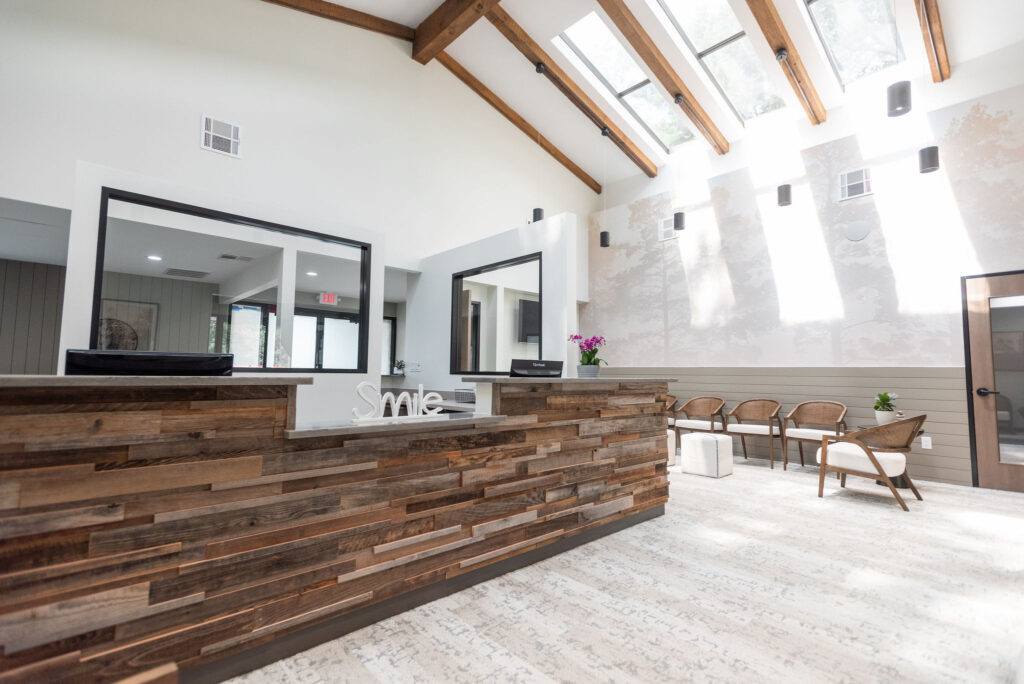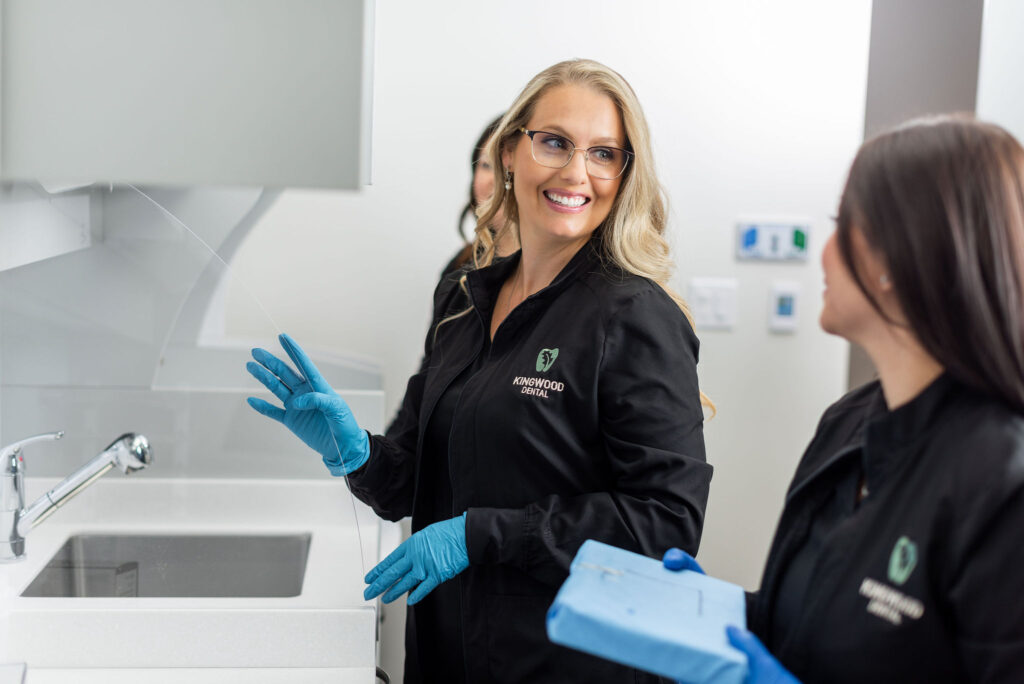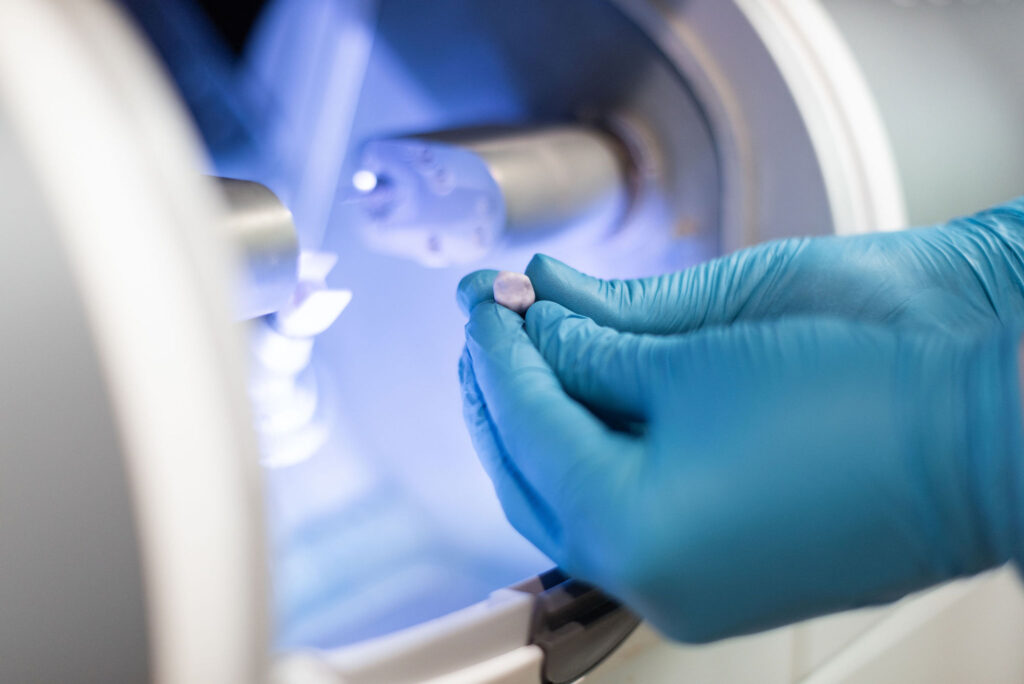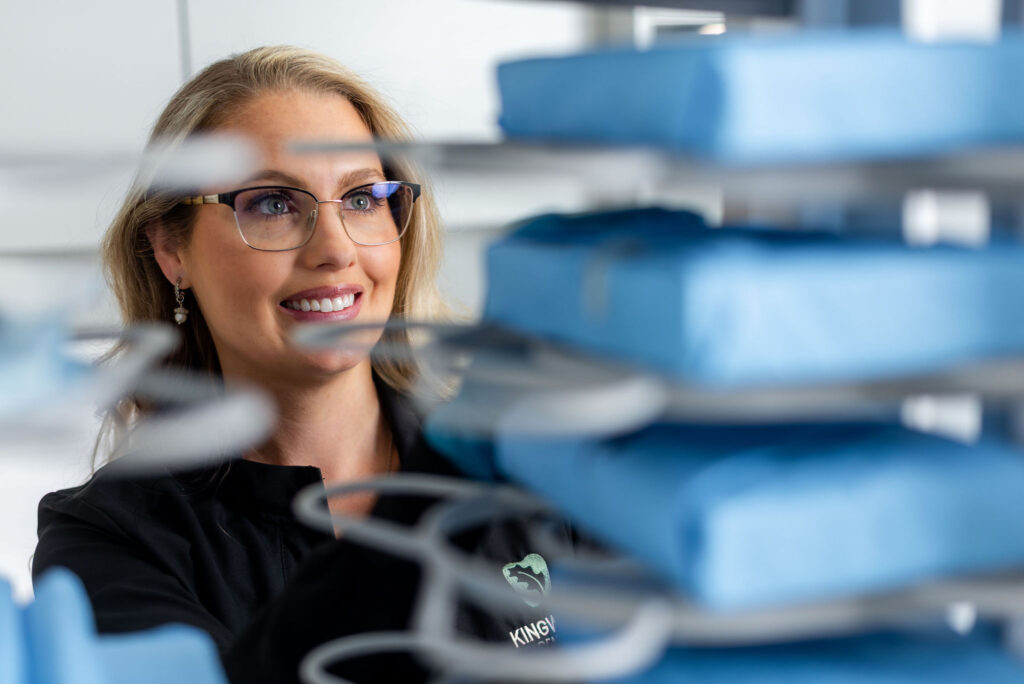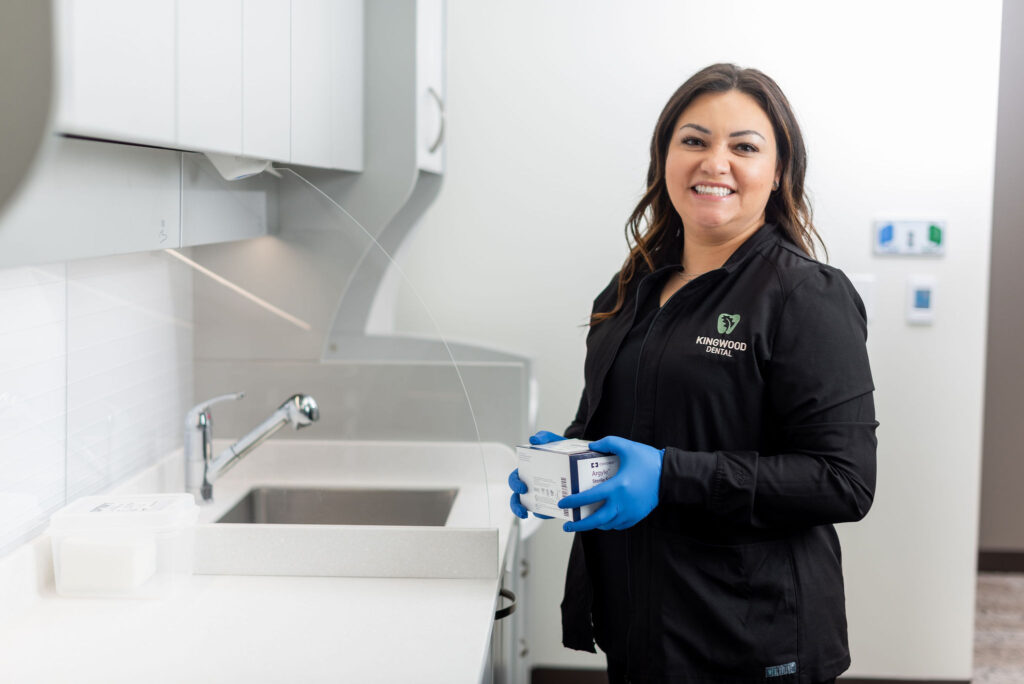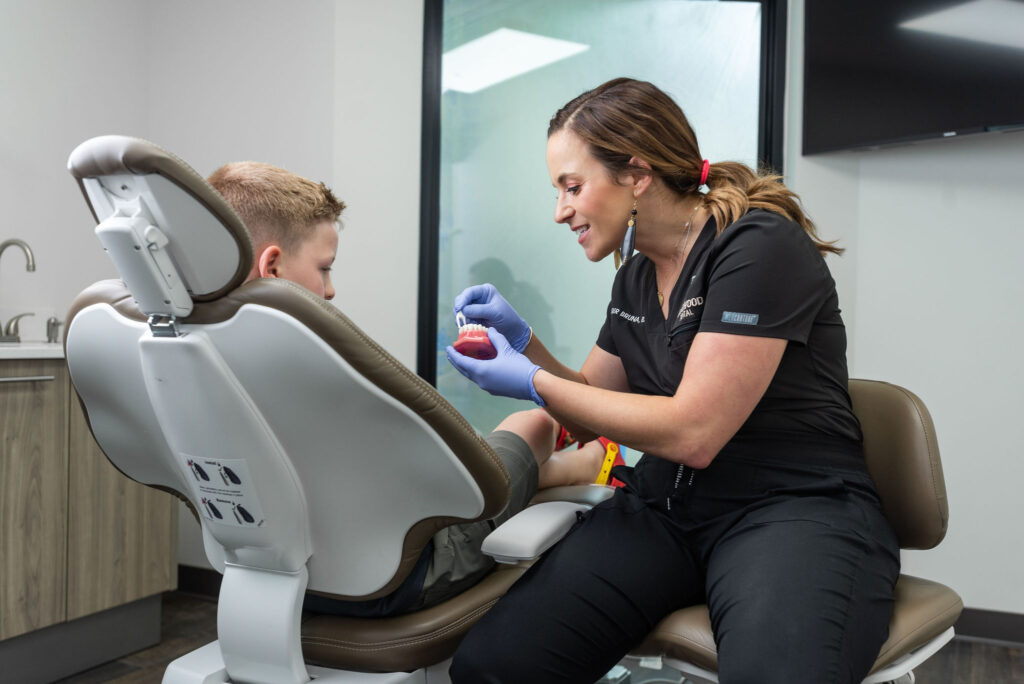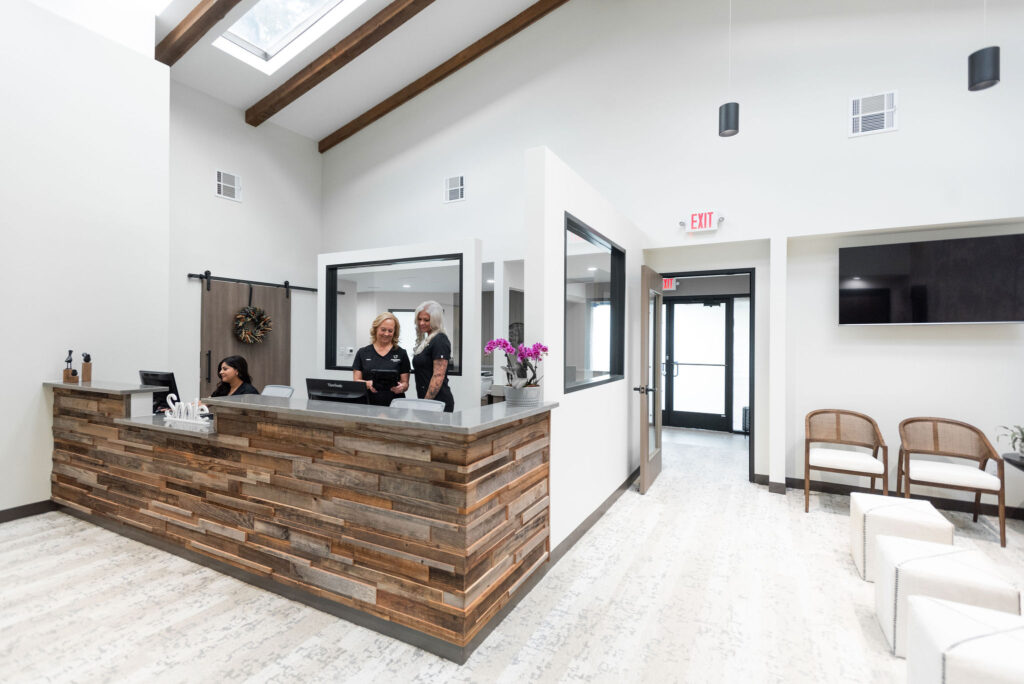Dental Bridges
Kingwood TX
Serving the Kingwood community& surrounding areas since 1998
Dental Bridges Kingwood TX
Serving the Kingwood community & surrounding areas since 1998
Dental Bridges For Missing Teeth
Over time, a missing tooth can cause a variety of oral health issues to develop, such as migrating teeth, an increased risk of gum disease and cavities developing, jawbone deterioration, and tooth loss. Missing teeth also hamper your ability to bite and chew and maintain proper oral hygiene habits and can have a significant impact in your sense of self-confidence regarding your smile.
There are a range of dental treatment options available for patients missing a tooth or teeth, including dental implants, crowns, dentures, and dental bridges. Which treatment option is right for you will be determined by the number of missing teeth and the overall state of the teeth surrounding the missing tooth. Patients missing one or several teeth may be good candidates for dental bridges. Dental bridges are a fixed dental restoration that are placed to close or “bridge” the gap between surrounding teeth. Dental bridges can be made from several different types of materials, the most common being zirconia and porcelain. The crowns that secure the bridge may be made of gold or metal alloys, but many patients opt for porcelain.
To ensure you have a clear understanding of what is involved in the dental bridge procedure and/or to determine if dental bridges are right for you, please refer to the information provided below. If you have additional questions or would like to schedule an appointment, contact us today at 281-359-9100, or visit our office at 1542 Green Oak Pl, Kingwood, TX 77339.
Types of Dental Bridges
The four primary types of dental bridges include the following:
- Traditional dental bridge: The most common type of dental bridge, the traditional dental bridge is used when patients have at least one natural tooth on either side of the gap and involves adhering the pontic (tooth) in place using cemented dental crowns on the surrounding teeth.
- Maryland dental bridge: Similar to a traditional dental bridge, the Maryland dental bridge differs only in that a porcelain or metal framework is bonded to the backs of the surrounding teeth.
- Cantilever dental bridge: Similar to a traditional dental bridge, the cantilever dental bridge differs only in that the pontic is adhered with a crown on only one of the surrounding teeth, not both.
- Implant-supported dental bridge: The most stable and strongest dental bridge option, implant-supported dental bridges adhere the dental bridge using an implant, rather than a crown or framework.
The Dental Bridge Process
If your initial examination indicates that you are a good candidate for a dental bridge, the process will begin with the preparation of the abutment teeth, which involves removing parts of the enamel to make room for the crown that will be placed over them. Once this is complete, a digital or physical impression will be made of the newly shaped teeth so an appropriate bridge can be designed. While this customized bridge is being made, you will be given a temporary bridge to ensure your gums and teeth are protected during this time.
At your next visit, the temporary bridge will be removed and the new bridge will be placed and assessed to ensure it fits properly. Depending on your particular case, it may be necessary to schedule several visits to ensure the bite and fit are both optimal. Once you and your dentist are satisfied that the dental bridge is properly positioned, the bridge is cemented into place.
Aftercare Following Dental Bridge
If dental bridges are not properly cared for, existing teeth can develop an infection, become irritated, and eventually start to decay. To prevent this from occurring, continue consistently following good oral hygiene practices. In addition to brushing and flossing twice daily (at a minimum), be mindful of the types of food and beverages you consume, and avoid foods or substances that can negatively impact your oral health (chewing tobacco, staining foods, sugary drinks). There are also tools that are specially designed to clean the bridge, such as water flossers, dental picks, and threaded floss. In addition to practicing consistent at-home maintenance, it is equally important to schedule regular dental cleanings every six months, or more frequently, depending upon your unique oral health needs. If you follow these general guidelines, you will enjoy a healthy smile for many years to come!
Bridge Cost & Insurance Coverage
The cost of having dental bridges will depend upon how many teeth are needed to fill the gap, the difficulty of placement, the type of materials used, the type of bridge you select, and what insurance coverage from your dental plan can be applied. It is important to be aware that you are fully responsible for all fees of treatment, and payment is due at the time of service, regardless of your insurance coverage. Monthly payment plans can be arranged, but this will need to be established prior to the procedure being performed. Although we may not have a contractual arrangement with your provider, our staff is happy to assist with processing your insurance claim to ensure that you maximize your benefits and receive the high-quality care you need and deserve. For your convenience, we accept Mastercard, Visa and Discover.

Schedule an Appointment Today
Scheduling an appointment for dental bridges is the first and most important step towards restoring functionality, improving your aesthetic appearance, and returning to a natural feeling bite. At Kingwood Family & Cosmetic Dentistry, we are dedicated to creating an environment where open dialogue is encouraged, so we can ensure you have a thorough understanding of the procedure being performed, and confidence that you are receiving high-quality specialized care designed to meet your unique needs.
To learn more about dental bridges, or to schedule an appointment, contact us today at 281-359-9100, or visit our office, which is located at 1542 Green Oak Pl, Kingwood, TX 77339.
We look forward to hearing from you and are committed to providing you with exceptional quality dental care that is grounded in a deep sense of respect!
